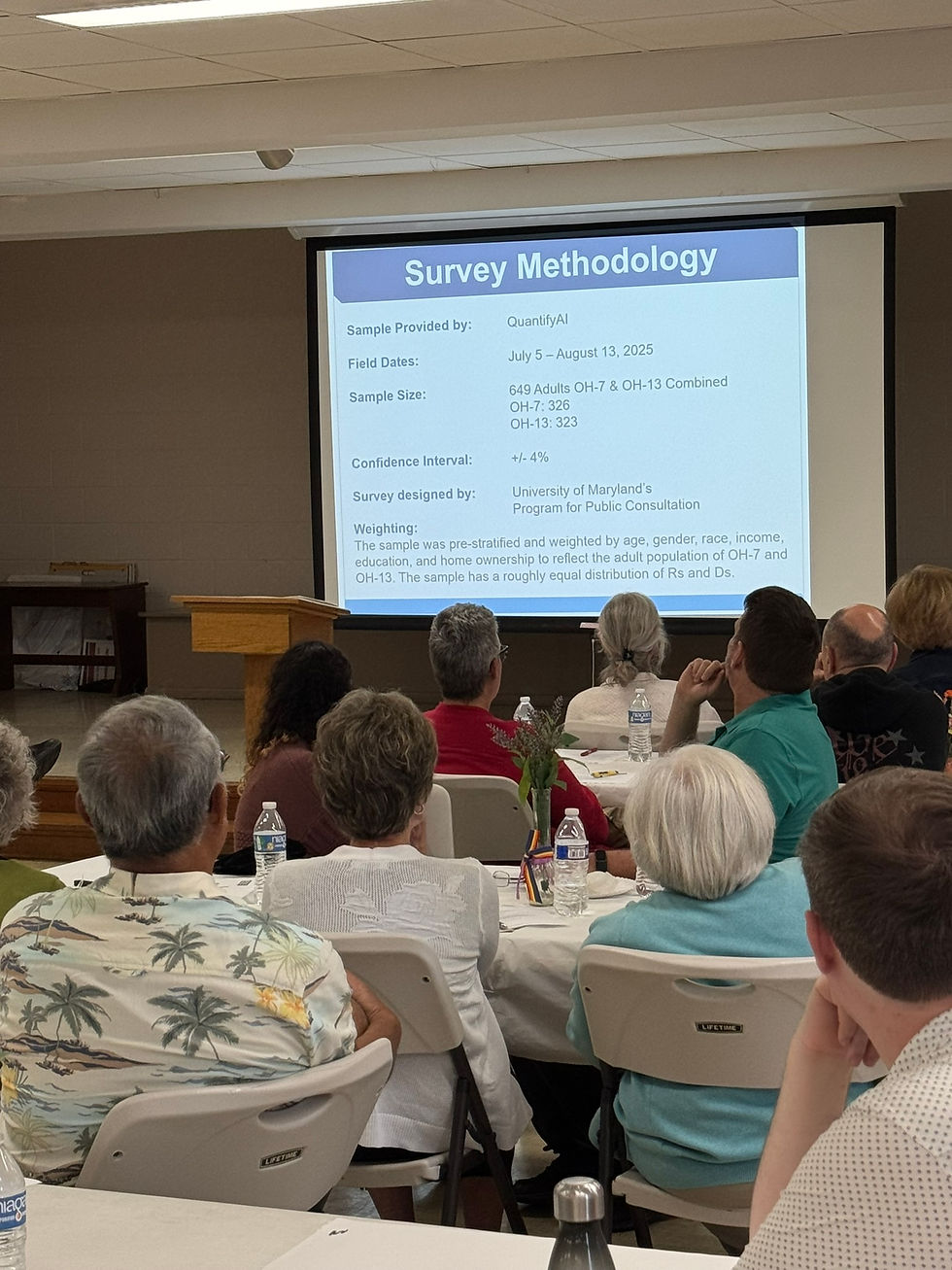In my last newsletter I provided details about my work with Voice of the People and Braver Angels to pilot a framework for constructive engagement with our elected officials.
As I mentioned last month, a statistically representative group of voters in Northeast Ohio was provided background information on current spending and taxation levels, with arguments for and against a number of proposals. Leveraging the Braver Angels approach to civil discourse, the results of that survey were shared at a Braver Angels Northeast Ohio Alliance meeting on August 27.

Twenty-five Ohio residents attended the event. And a staff member from the office of Rep. Max Miller (OH-7) attended to listen to the Ohio residents. Attendees were pleasantly surprised at the level of bipartisan agreement on tax and spending recommendations. They found this approach to public consultation refreshing and felt that going through the policymaking simulation was very enlightening.
“As opposed to the original town hall model that often fails, this model is a beautiful example of a non-inflammatory way of bringing together people to discuss and advocate for real policy solutions,” voiced an attendee in the closing segment of the event.

The full survey findings and results of the in-person forum can be found here: vop.org/NEOhio
Over the next couple of months, we will be leveraging lessons learned from the event to expand this pilot to other congressional districts and other Braver Angels' local alliances. Other groups such as the Grand Bargain Project are launching similar efforts to engage citizens, with the objective of overcoming partisan gridlock and providing elected officials the cover they need to support bipartisan solutions to the difficult problems facing our country.
The exact approach to this type of constructive engagement will likely vary by Congressional district, and the prospect of success is uncertain at best. However, events like the one we just completed in Northeast Ohio provide me with hope that people are tired of partisan polarization and want a government that works for all of us.
I am about to embark on a much-needed vacation. Stay tuned for my next Speak for Good Government newsletter in October.


